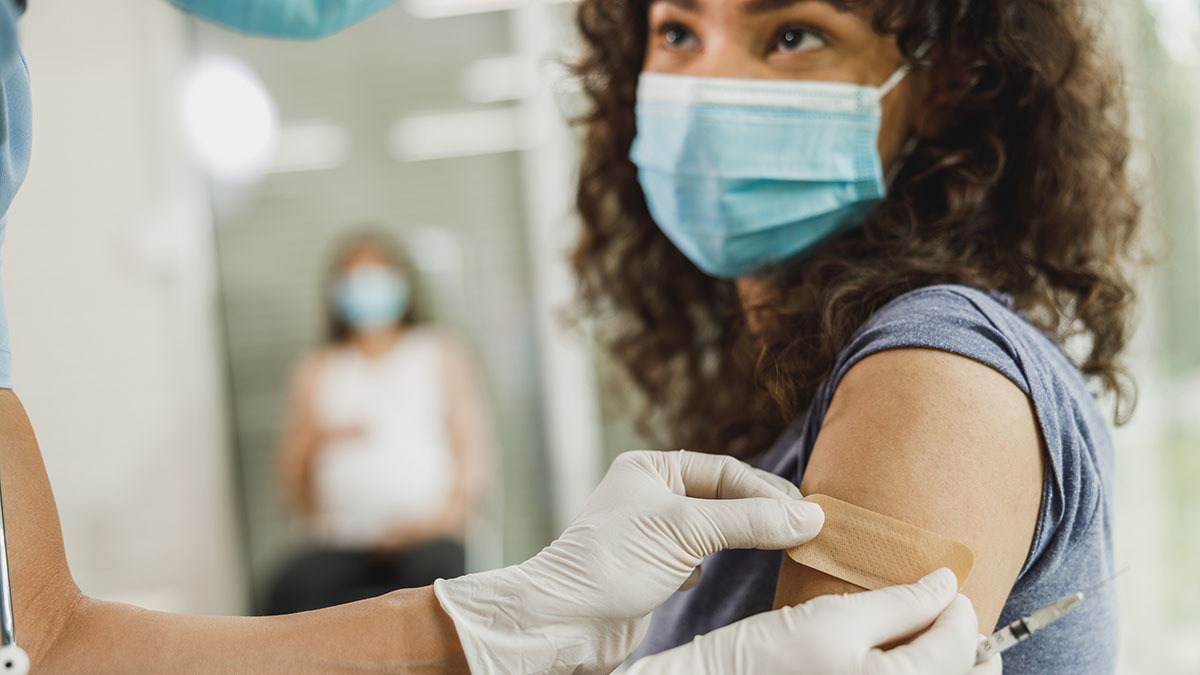
Updated COVID-19 Vaccination Guidelines for CACs
The latest guidance on public health and recommended policies for CACs
Updated October 12, 2021
To ensure the safety of the children and families we serve, as well as the safety of our community, staff, volunteers, and partners, vaccination remains the single most effective step at combating the spread of COVID-19 and preventing hospitalization, severe illness, and death. This guide provides the most up-to-date information on the safety effectiveness of the vaccines and answers to common questions about CAC professionals and vaccination against COVID-19.

COVID-19 vaccination safety and effectiveness
Is the COVID-19 vaccine safe?
Yes. Based on results of the largest clinical trials in American history, the COVID-19 vaccines approved by the FDA for distribution in the U.S. are safe.
See the CDC’s facts about COVID-19 vaccines for more information
Will vaccines protect me, my team, and my clients, from getting sick with COVID-19?
Yes. While protection is not absolute, the Pfizer and Moderna vaccines first to reach the market in the U.S. remain very effective at preventing symptomatic COVID-19 infections. Critically, these two vaccines are still very effective at preventing severe illness requiring hospitalization by Delta variant infections. According to the latest CDC study, unvaccinated people are over 10 times more likely to be hospitalized with COVID-19 than vaccinated people. Unvaccinated people are also 11 times more likely to die of COVID-19 than vaccinated people, the study found.
Learn how COVID-19 vaccines work
Does NCA recommend that CAC professionals and MDTs be vaccinated against COVID-19?
We strongly encourage CAC staff, volunteers, and partners to receive the vaccine as soon as possible as a matter of both workforce safety and safety for children and families. Many clients may not be vaccinated or even able to receive the vaccine due to age or medical conditions that compromise the immune system. What’s more, many clients may not have a choice whether or not to appear at the CAC, intersecting with safety and consent issues.
Should CACs mandate that staff be vaccinated?
Many CACs have achieved full staff vaccination through voluntary means. For others, most staff are vaccinated but there are some staff that are still hesitant or reluctant to do so. In many instances, having one-on-one conversations to address fears and concerns and/or offering incentives may achieve full vaccination status.
Where that does not achieve full vaccination status, for the health and safety of both employees and families served by the CAC, the CAC should consider a mandatory vaccination policy (taking into account bona fide religious and medical exemptions) for staff, in consultation with HR and the CAC board. It is important to keep in mind that CACs exist to attend to the physical and psychological safety and well-being of children. So, as a matter of first principles, we have to be vigilant about creating and maintaining a safe and healthy environment for them and their families.
One important consideration is that clients may not have a choice on whether to appear at the CAC and certainly have no choice about a child abuse investigation. Their level of safety and concern about infection during their visit is paramount. While some staff may be hesitant to be vaccinated, there are ways to address this hesitation.
- Ensure that you are willing to have open discussions with staff, listening to and addressing concerns.
- Consider group incentives for staff/partners to reach 100% vaccination, such as gift cards or flex days.
- Consider vaccine mandates in consultation with HR or legal professionals.
The best evidence for how to overcome COVID vaccine fears (Scientific American)
COVID-19 vaccine FAQ: Safety, side effects, and efficacy
Do I need the vaccine if I’ve already been infected?
Yes. While prior infection with SARS-CoV-2 does provide some immunity from the strain that caused the initial infection, reinfection is still possible. It is still unknown how long recovered hosts are immune from the strain they were previously exposed to, and reinfections may still be dangerous to the host and infectious to others. The Pfizer and Moderna vaccines are not “strain specific” and work by building the body’s immunity against the virus’ method of getting inside of the body’s cells.
| Access Date | Quiz Result | Score | Actions |
|---|
